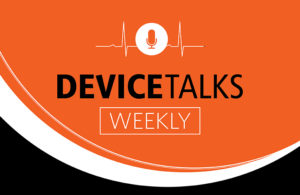 Twenty years ago when he was working at the Mayo Clinic, cardiologist Dr. David Hayes shot down the idea that medical devices would serve patients better if equipped with technology that collected and transmitted data.
Twenty years ago when he was working at the Mayo Clinic, cardiologist Dr. David Hayes shot down the idea that medical devices would serve patients better if equipped with technology that collected and transmitted data.
Hayes had many reasons. He said patients liked coming to the doctors’ offices. “I thought they’d miss that connection,” he said. He worried that physicians would be overwhelmed with too much data. He had other objections, too, and he’s not afraid to admit it.
“You could just check them off one-by-one,” he said in this week’s DeviceTalks Weekly podcast. “I was wrong on every one.”
Now chief medical officer for Biotronik, Hayes came around years ago and is responsible for ensuring the medical device company keeps moving forward in incorporating technology that can connect patients with physicians and hospitals. Biotronik is among the growing number of medical device companies that are examining new potential for medtech connectivity.
The march toward medtech connectivity was already inevitable. According to a report issued by S3 Connected Health, the global market for connected medical devices will triple over the next 4 years, hitting $188 billion in 2024. The report estimates that 50 billion medical devices will connect clinicians, health systems, patients and other devices over the next decade. [Editor’s note: S3 Connected Health is sponsoring a DeviceTalks Tuesdays virtual conference on medtech connectivity on Tuesday.]
COVID-19’s impact on the healthcare system only accelerated the adoption. Medtech veteran Bill Betten, director of medtech solutions at S3, said many medtech startups have worked hard to pivot their products to serve the COVID-19 market. For example, hearing aid makers incorporate new technology in their process to allow patients to be fitted for devices without having to visit an audiologist, Betten said in the podcast.
Biotronik will also let technology do more of the heavily lifting in monitoring patients who have received pacemakers and other implants, according to Hayes, who said that historically, Biotronik’s patients would come in for in-person check ups on a fairly routine basis. But closer study shows those visits don’t require any treatment or action by the physicians.
“I believe what this will drive us to do is more of those routine non-actional checks remotely and we’ll only bring people in when there’s a suspicion that we need to actively do something,” Hayes said.
Betten, who will be a speaker on the DeviceTalks Tuesdays event, says quicker adoption of new connectivity technology is possible if payers and regulators don’t tighten the rules that have been relaxed to accommodate remote patient care during the pandemic. Medtech companies, big and small, would be wise to have connectivity plans in place to position their device to operate fully in a changing landscape, he told the podcast.
To find out more information about the DeviceTalks Tuesday discussion go to DeviceTalks.com.